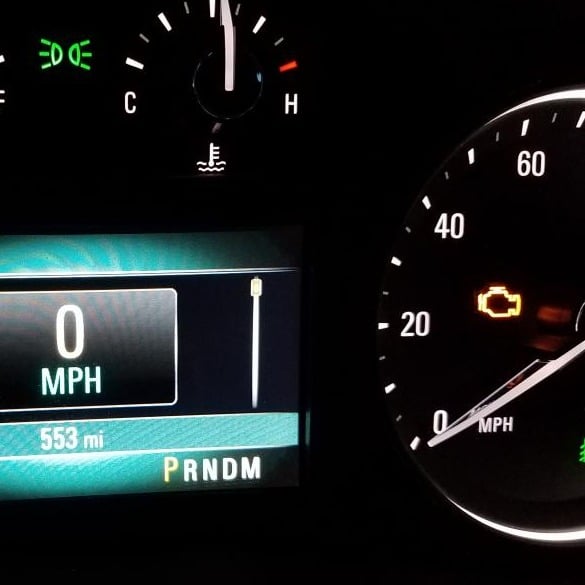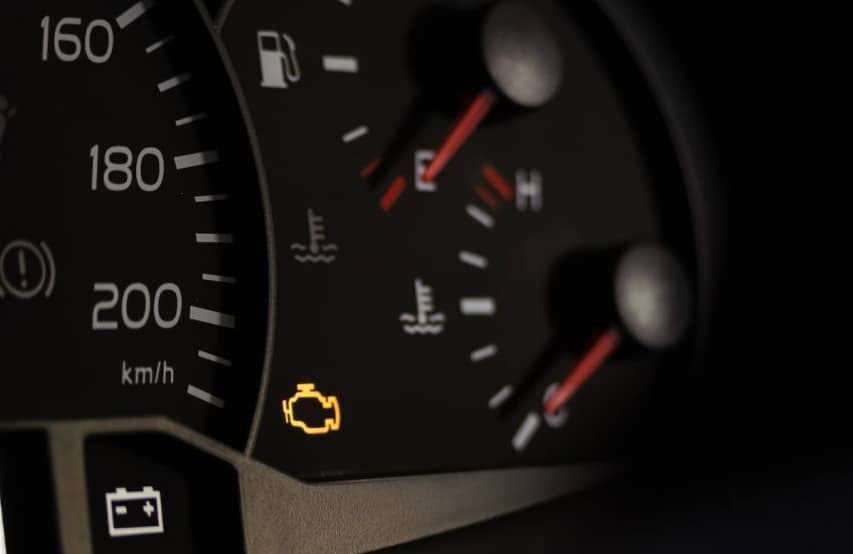Your Buick check engine light may be telling you that there is a problem with your car. There are many potential causes of this problem. Here are a few of them: Damaged spark plugs, Vacuum leak, and Gas cap. Check your car’s owner’s manual for more information.
Gas cap
A loose gas cap can cause the check engine light to illuminate. However, the good news is that replacing the gas cap is relatively inexpensive. It only costs a few dollars, and can be easily performed when you are at rest. However, before attempting this replacement, make sure to check that the cap is compatible with the model of your car.
First, make sure the gas cap is in good condition. The gas cap is the most likely cause of your check engine light. It is important to keep the cap clean and tight so that it won’t cause further damage. If you notice that the cap is loose, you should take it to an auto parts store for a free diagnosis. You may also want to take a look at the gas cap’s location. You can use a gas cap gauge to check for leaks.

Checking the gas cap will help prevent your Buick check engine light from coming on. It will also prevent vapors from escaping the fuel tank. A loose or broken gas cap will reduce fuel efficiency and increase emissions. So, if you notice the check engine light on your dashboard, pull over and check the gas cap first.
If the gas cap is loose, you should replace it. The check engine light may come back on after a day or two. If it does, contact an expert for a more detailed diagnostic. It may be a temporary issue caused by changes in the outside environment. The light will go off after a short period of time. To diagnose a more serious problem, you can use an OBD-II scanner.
If your Buick check engine light is still on, you can continue driving. Fortunately, it is not dangerous to drive your Buick. Just make sure you lower the speed and take it to a certified mechanic. The experts at Coggin Buick/GMC of Orange Park will make sure you’re able to safely fix it.
Another common issue that causes a Buick check engine light to illuminate is a loose gas cap. Tightening the gas cap should turn the light off. Moreover, if your Buick is experiencing high converter usage, you should check the catalytic converter. Once this has been fixed, the light should go away after about twenty to forty miles.
Mass airflow sensor
The mass airflow sensor is an easy part to replace. It’s located in the car’s air intake system. This component is durable and doesn’t break easily, but it does need to be replaced once it stops working properly. The repair is not difficult, but it may improve the performance of the car.
To replace the mass airflow sensor, you will need to open up the air box and remove the sensor. To remove it, you’ll need a flathead screwdriver. When you remove the mass airflow sensor, be careful not to touch the wires. Though you don’t have to worry about getting electrocuted, the wires are very delicate and should be handled with care. Also, if one of the wires breaks, you’ll need to replace it with a new one, which can cost up to $100.
A faulty mass airflow sensor can affect the performance of the engine. It can cause excessive fuel consumption, a slow start, and trouble starting the car. It can also cause the check engine light to come on. Another symptom of a bad mass airflow sensor is abnormal power surges. This can happen even when you’re driving at normal speed.
A bad mass airflow sensor can lead to poor gas mileage. It can also damage the catalytic converter and cause ignition failure. However, there are ways to clean the mass airflow sensor to help it last longer. Replacing the mass airflow sensor should not take longer than an hour.
When the mass airflow sensor in your Buick is malfunctioning, the check engine light may come on. If this happens, you should take it to a mechanic for a proper diagnosis. A replacement will ensure proper performance of your engine. It can also cause other problems, such as the misfiring of the engine.
Fortunately, the repair process is easy. Simply visit Coggin Buick/GMC of Orange Park for assistance. A certified technician will reset the light and restore it to its normal state.
Vacuum leak
When your Buick check engine light comes on, you may be wondering what the issue is. This warning can occur for several reasons, and it is important to know the problem right away. Specifically, a vacuum leak can cause your vehicle to run poorly, losing power and gas efficiency. Fortunately, there are several ways to check if your Buick may have a vacuum leak.
The most common symptom of a vacuum leak is a rough idle. This is caused by the throttle body’s inability to control the air-fuel mixture. In order to fix this issue, you should replace the faulty parts of the throttle body. Once the vacuum leak has been repaired, the check engine light should turn off.
A vacuum leak can also cause the check engine light to illuminate. In order to diagnose the problem, you will need to know what codes are displayed on your vehicle. These codes tell a repairman what sensors need replacing. Another common problem with check engine lights is misfiring. It’s important to get your vehicle serviced as soon as possible to prevent any serious damage.
The best way to find a vacuum leak is by checking for any of the following symptoms. When you notice a Buick check engine light on, the air-flow sensor is likely to be faulty. This sensor connects the engine’s ECU to the intake system. It measures the amount of air coming into the engine and indicates if the car has a vacuum leak.
A vacuum leak will result in a lean mixture, which means it’s harder for the car to accelerate. In addition, the engine’s RPM will increase as more air cycles through the engine. This happens because the butterfly valve opens more when the accelerator is pressed. A vacuum leak will also result in a slow acceleration.
While a Buick check engine light can be caused by a number of different issues, it’s best to consult with an experienced mechanic to diagnose the problem and take appropriate action. Most code readers have an erase function that allows you to erase any codes that may be causing the problem. You may just need to replace a loose gas cap, but you may also have a problem with the mass airflow sensor or the crankshaft sensor.
Damaged spark plugs
If your Buick check engine light is flashing, you might be looking at damaged spark plugs. This can result in poor fuel economy or prolonged start-up times. You might also notice a slower acceleration. A faulty spark plug may also lead to a high fuel consumption.
Damaged spark plugs can also result in a rattling or ticking sound under the hood. The ignition coils and spark plugs need to be checked and replaced at the appropriate intervals. You should not wait too long to check these parts, as they can cause damage to the engine and catalytic converter. Instead, take your Buick to a mechanic or workshop to have them checked. An experienced mechanic will be able to quickly diagnose the problem and provide a solution.
If you’re experiencing damaged spark plugs on a Buick checkengine light, you need to replace them immediately. In most cases, replacing spark plugs is a cheap way to improve the performance of your car. If you’re worried about the cost of replacing spark plugs, you can check the cost of spark plugs online. Checking spark plugs regularly will also extend the life of your car’s engine.
If you notice that the Check Engine light on your car is flashing on a frequent basis, you should have the problem checked immediately. If the check engine light continues to flash, it is likely a serious problem. Taking action now will save you a lot of money and heartache in the future.
Bad spark plugs can also affect the efficiency of your engine. If your Encore GX struggles to accelerate or takes longer to reach a desired speed, you should replace your spark plugs. Bad spark plugs can also cause a rough idle, which causes vibrations inside the cabin. Additionally, damaged spark plugs can cause your car to have low gas mileage and excessive fuel consumption.
If you notice that your Buick check engine light is flashing, you must have the problem fixed right away. It could be something as simple as damaged spark plugs or as serious as an EVAP leak.
